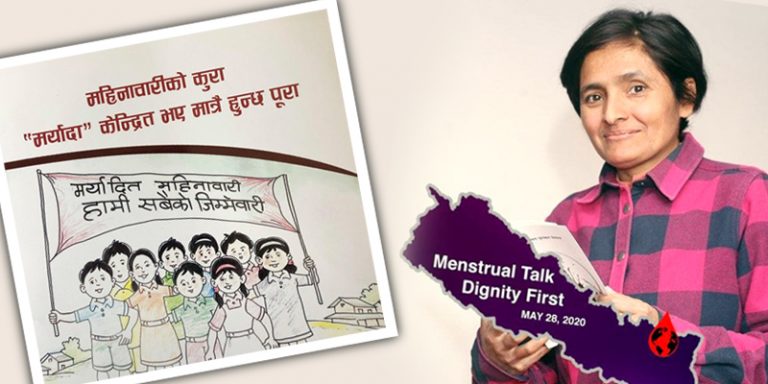
Identity is the most important thing. It is the fact of being who or what a person or thing is. Identity is associated to liberty and everyone loves their liberty. Individual belongs to any community loves their identity with liberty. It keeps existence alive. Identity helps to guarantee the presence of an individual in a society or community. Despite a society that is moving forward in acceptance of differences, many young people still maintain uncomfortable and confused attitudes towards some phenomenon. Though some human rights are instantly familiar to people, rights that are crucial to enable people to live with dignity are much more important.
Though Ministry of Home Affairs issued the directives to dismantle ‘Chhau Goth’ making vigorous decision, it is still prevailing across the country and huts remained in some parts of west Nepal. Women are still not held being accountable despite legal provisions.
Dignified menstruation principally is a human right concern as aligned with the principles of Human Right Declaration 1948. It is holistic approach to address all kinds of violence, discrimination, abuses associated with menstruation from individual to nation, private to public and all. The Constitution has addressed the need and urgency of dignified menstruation directly concerned with women health, education and right to live dignified life. Meanwhile, Chaaupadi the malpractice of keeping women and girls in huts and cowsheds away for their homes during menstruation has been criminalized in 2017. But, the number of women and girls who have lost their lives are increasing day by day. Though Ministry of Home Affairs issued the directives to dismantle ‘Chhau Goth’ making vigorous decision, it is still prevailing across the country and huts remained in some parts of west Nepal. Women are still not held being accountable despite legal provisions.
Relating to this, the government have launched sanitary pad distribution campaign targeting all girl students of the community schools across the country so that their school days will not be missed during their menstruation. Many NGO’s are promoting awareness campaigns regarding menstrual hygiene. They have been organizing different activities in order to reduce taboos associated with menstruation. On the other hand, government has already drafted a national policy on dignified menstruation to address the menstruation taboos and ensure availability of proper facilities and materials. The parliament has recently passed a bill to punish by imprisonment or a fine of Rs 3,000 to those who force people to practice under the Chhaupadi system.
Social activist, Dignified Menstruation campaigner and founder at Global South Coalition for Dignified Menstruation Radha Poudel is working with a mission to dismantle stereotype belief regarding menstruation. The coalition in coordination with Ministry of Women, Children and Senior Citizen, and National Human Right Commission, Nepal is going to organize an international workshop on Dignified Menstruation from May 26 to May 28 in Kathmandu, Nepal along with the slogan “MenstrualTalkDignityFirst”. Paudel also won Madan Prize 2014, the prestigious literary award, for her book ‘Khalanga Ma Hamala. The book makes an account of the Maoist attack in Khalanga, the headquarters of Jumla during a decade long Maoist insurgency.
Whether it be about women in war or women working at home, in office or somewhere else, menstruation should not be made a matter of social or religious stigma. Thus, the need to talk about dignified menstruation is must to end all form of gender-based violence and ensuring human right. Having fruitful conversation on it is the matter of dignity beyond the taboo, stigma, rumors, restrictions or assumptions around menstruation. In order to combat and eliminate all forms of abuses and discrimination against women, the dialogue on dignified menstruation is vital.









